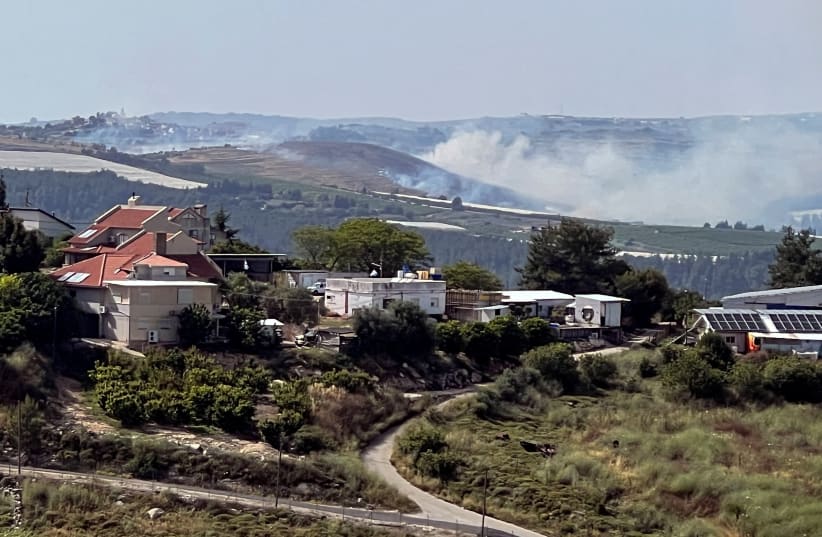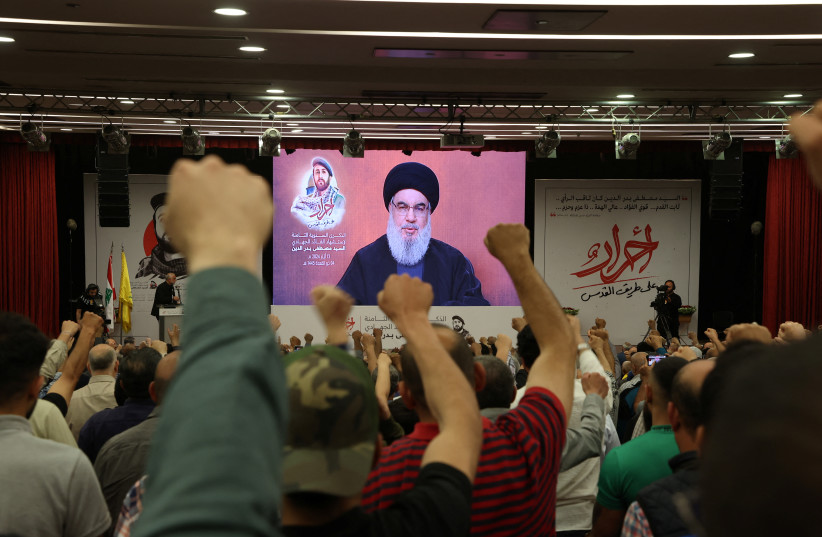Over the past month, Hezbollah has consistently increased its attacks against Israel, coinciding with the IDF’s operation in Rafah to eliminate the last battalions of Hamas.
If Hamas is cut off from re-supply, the Iranian axis will look to increase Hezbollah threats – because, throughout seven months of the war, Hezbollah has remained largely intact.
Its attacks in recent weeks included barrages of 40-100 rockets and drones per day, with an increasing reliance on drones, a complex threat both because they can target Israel with precision and because they maneuver and cause sirens to be set off in a wide area.
Israeli leaders want to do something about this, but the fact that politicians cannot decide on a plan for Gaza has hampered their ability to come up with a plan for the North. However, the time for Israel to tinker with this threat may be narrowing. As the IDF advances in Gaza, Hezbollah becomes more brazen in its attacks, like the targeting of a surveillance blimp 32 km.
Inside Israel, the deepest attack yet by a Hezbollah drone. Also, Hezbollah often spells out how it conducts precision attacks on targets that it has monitored along the border.
Israeli government struggles to form comprehensive response to Hezbollah threat
On Sunday, Finance Minister Religious Zionism party chairman Bezalel Smotrich called on Prime Minister Benjamin Netanyahu to issue an ultimatum to Hezbollah to stop firing on the North and withdraw north of the Litani River. Minister-without-portfolio and war cabinet member Benny Gantz also called on the government to find a solution for the north in a multi-point series of demands on Saturday night.
One of the demands he made was for Israelis to be able to return to the North. Eighty-thousand residents were evacuated from the north in October after Hezbollah attacked on October 8.
In essence, Israel surrendered the border and enabled Hezbollah to create a “security zone” inside Israel. If Israel can’t re-write the rules, then Hezbollah will be allowed to determine when Israelis are allowed to live within their borders, an unprecedented failure of the state to secure its citizens.
However, it comes as Israel also failed to do the same in the south, part of a much larger problem.
Hezbollah said on Sunday that it targeted several sites in Israel in aerial attacks, including an IDF jeep. The problem is that after seven months of war, Hezbollah’s Radwan force continues to operate.
There are many questions now about what comes next. One of the problems is that Israel entered a feedback loop in its proportional response to Hezbollah. This means that Hezbollah gets to choose when and where to target, and only then does Israel respond.
In general, this gives Hezbollah the initiative and leads to diminishing returns. Hezbollah lost some members, but overall, there appear to be fewer and fewer targets to strike in the “proportional” responses.
Hezbollah has said it wants to re-write the “equation” in the north. What that means is that Hezbollah is keenly aware of Israel’s constraints – or restraint – in this matter. It remains uncertain whether Hezbollah wants a wider conflict. It does not appear to, but Hezbollah also thinks it succeeded, something Iran is pleased with.
Tehran is trying to inflame numerous fronts against Israel; the Hezbollah front is only one of them. As long as it can keep the front simmering, it has succeeded. This is because Israel has more to lose from simmering than Lebanon or Iran. So, Israel is now in a bind. The more time passes, the more the world sees the Hezbollah attacks as “normal,” and any Israeli response is then an“escalation.”

